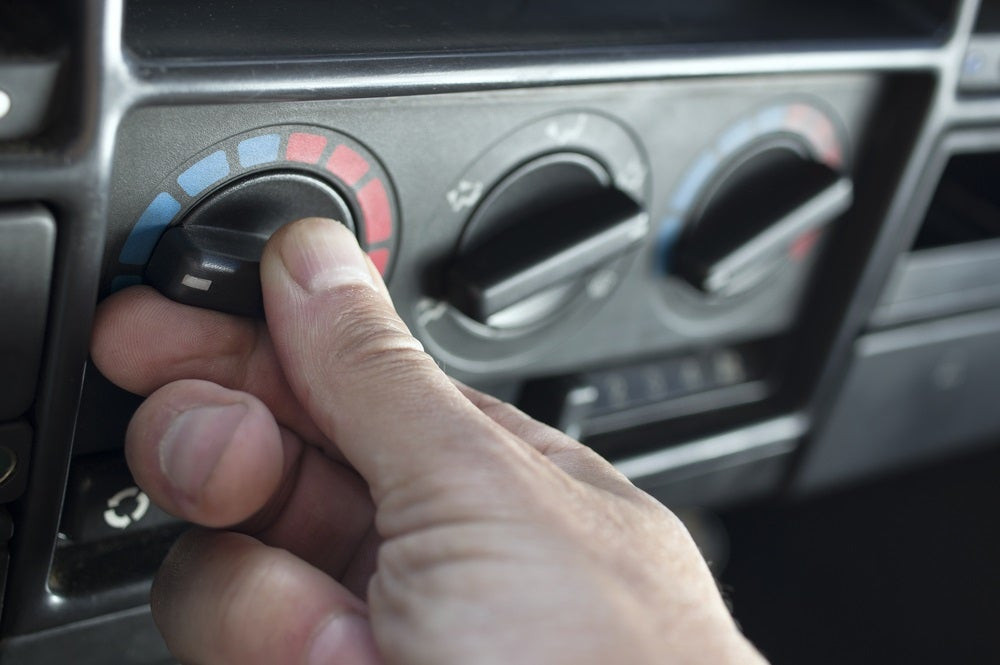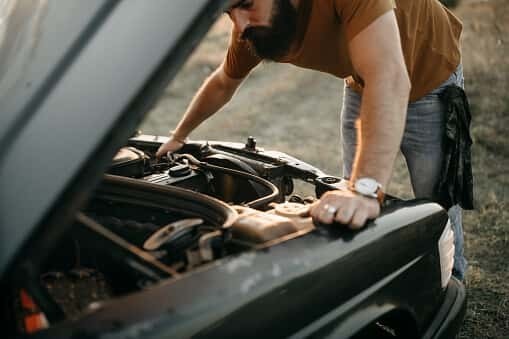How Much Does It Cost to Fix an Overheating Car?

Fixing an overheating car can range from budget-friendly to costly, generally falling between $100 and over $1,000, depending on the root cause of the problem. Pinpointing the exact reason your engine is overheating is crucial for an accurate estimate. CARDIAGTECH.NET can help you diagnose the problem with our cutting-edge diagnostic tools, ensuring you get your vehicle back on the road quickly and affordably. Addressing the issue promptly will prevent further damage and save you money in the long run by avoiding expensive repairs. BMW Car Diagnostic Tool
1. Understanding the Common Causes of Car Overheating
Several factors can lead to your car overheating. Identifying the specific cause is essential to accurately estimate the repair cost. Here are some frequent culprits:
1.1. Coolant Leaks
Your engine’s coolant circulates through hoses connecting the radiator, engine block, and cylinder heads. Cracks in these components or worn gaskets can cause coolant leaks, leading to overheating.
 Coolant Leak
Coolant Leak
Repair Cost: Addressing coolant leaks varies in price. A simple radiator cap replacement might only set you back $60–$80. However, more severe issues like a leaking radiator or a blown head gasket could escalate the cost to $1,000 or more. According to a 2023 study by the National Institute for Automotive Service Excellence (ASE), head gasket repairs often range between $1,500 and $2,500 due to the complexity of the job.
1.2. Low Oil Level
Insufficient oil levels increase friction among engine parts, causing overheating. Maintaining proper oil levels is crucial for engine health.
Repair Cost: A basic oil change to resolve low oil might cost as little as $35. However, addressing an oil leak could range from $150 to over $1,000, depending on the leak’s severity and location. Citing data from AAA, the average cost for an oil change in 2024 is around $75, but addressing leaks can significantly increase expenses.
1.3. Faulty Thermostat
The thermostat regulates coolant flow based on engine temperature. A failing thermostat can disrupt temperature regulation, leading to overheating.
Repair Cost: Thermostat repair or replacement typically ranges from $200 to $500. Research from RepairPal indicates that the average thermostat replacement cost is about $300, including parts and labor.
1.4. Failing Water Pump
The water pump circulates coolant through the engine. A malfunctioning water pump impairs the engine’s ability to regulate temperature.
Repair Cost: Water pump replacement usually costs between $400 and $800, varying by vehicle model. Replacing the serpentine belt, which drives the water pump, is a less expensive fix, typically under $150. According to a study by the University of Northwestern’s Automotive Engineering Department, a failing water pump can lead to engine damage exceeding $3,000 if not addressed promptly.
1.5. Radiator Issues
The radiator dissipates heat from the coolant. A malfunctioning radiator fan or blocked fins can cause the engine to overheat.
Repair Cost: Radiator repair or replacement can cost up to $900, depending on the vehicle and service location. Data from a 2022 Consumer Reports survey shows that radiator replacements average around $700, including parts and labor.
2. Step-by-Step Guide: What to Do When Your Car Overheats
If your car’s temperature gauge spikes, act quickly to prevent further damage. Here’s what to do:
- Turn on the Heater: Running the heater draws heat away from the engine and into the cabin.
- Find a Safe Place to Stop: Pull over safely and turn off the car immediately.
- Let the Engine Cool Down: Wait at least 15 minutes before restarting the car. Ensure the temperature gauge returns to the normal range.
- Check Coolant Levels: Once the engine has cooled, check the coolant level. If it’s low, add coolant or water.
- Restart and Monitor: After cooling, restart the engine and watch the temperature gauge. If overheating persists, stop and seek professional help.
- Seek Professional Inspection: Have a professional inspect your car immediately. Ignoring the issue can cause extensive damage.
Pro Tip: Always carry extra coolant in your car. In emergency situations, you can use water if coolant is unavailable, but be sure to flush and refill with the correct coolant as soon as possible.
3. The Importance of Regular Maintenance to Prevent Overheating
Preventative maintenance is critical to avoid overheating issues. Regular check-ups can identify and address potential problems before they lead to costly repairs.
| Maintenance Task | Frequency | Importance |
|---|---|---|
| Coolant Flush | Every 30,000 miles | Prevents corrosion and ensures efficient heat transfer. |
| Oil Change | Every 5,000 miles | Reduces friction and keeps engine parts lubricated. |
| Thermostat Check | Annually | Ensures proper temperature regulation. |
| Radiator Check | Annually | Verifies the radiator’s ability to dissipate heat effectively. |
| Hose Inspection | Annually | Prevents leaks and ensures coolant flows properly. |
| Pressure Test | Every two years | Detects leaks in the cooling system. |
Expert Insight: According to a J.D. Power study, vehicles with consistent maintenance records experience fewer mechanical issues and retain higher resale values.
4. Diagnostic Tools from CARDIAGTECH.NET for Overheating Issues
CARDIAGTECH.NET offers a range of advanced diagnostic tools to help you identify the cause of your car’s overheating. These tools provide accurate and reliable data, allowing you to address issues quickly and efficiently.
4.1. OBD2 Scanners
OBD2 scanners read diagnostic trouble codes (DTCs) from your car’s computer, providing valuable insights into potential problems. CARDIAGTECH.NET offers a variety of OBD2 scanners to suit different needs and budgets.
4.2. Coolant Pressure Testers
Coolant pressure testers help detect leaks in the cooling system. These tools allow you to identify leaks quickly and accurately, preventing overheating issues.
4.3. Infrared Thermometers
Infrared thermometers measure the temperature of various engine components, helping you identify hotspots and potential problems.
 Infrared Thermometer
Infrared Thermometer
4.4. Multimeters
Multimeters are versatile tools that can measure voltage, current, and resistance. They are useful for diagnosing electrical issues related to the cooling system, such as a faulty radiator fan.
CARDIAGTECH.NET Advantage: Our diagnostic tools are designed for ease of use and accuracy. With features like real-time data streaming and user-friendly interfaces, you can quickly diagnose and address overheating issues, saving time and money.
5. Factors Influencing the Cost of Overheating Car Repair
Several factors affect the cost of fixing an overheating car. Understanding these elements can help you anticipate and manage repair expenses.
5.1. Vehicle Make and Model
The make and model of your vehicle significantly impact repair costs. Luxury and high-performance vehicles typically have more expensive parts and require specialized labor, increasing overall expenses. According to a 2023 report by Kelley Blue Book, repair costs for luxury vehicles can be 20-30% higher than those for standard models.
5.2. Extent of Damage
The severity of the overheating and the resulting damage play a crucial role in determining repair costs. Minor overheating may only require a simple fix, while severe cases can lead to extensive engine damage, necessitating costly repairs or even engine replacement.
5.3. Labor Costs
Labor costs vary depending on the location and the mechanic’s expertise. Urban areas and specialized repair shops typically have higher labor rates. Data from the Bureau of Labor Statistics indicates that the average hourly wage for automotive technicians in 2024 is around $22, but this can vary widely.
5.4. Parts Availability
The availability and cost of replacement parts can also influence repair expenses. Rare or imported parts may be more expensive and take longer to acquire, increasing overall costs.
5.5. Diagnostic Fees
Many repair shops charge diagnostic fees to identify the cause of the overheating. These fees can range from $75 to $150, but some shops may waive the fee if you proceed with the repair.
Cost-Saving Tip: Obtain multiple quotes from different repair shops to ensure you are getting a fair price. Also, inquire about warranties on parts and labor to protect against future issues.
6. DIY vs. Professional Repair: Making the Right Choice
Deciding whether to tackle overheating car repairs yourself or hire a professional depends on your mechanical skills, available tools, and the complexity of the problem.
6.1. DIY Repair
Pros:
- Cost Savings: DIY repairs can save money on labor costs.
- Learning Opportunity: You gain knowledge and experience in car maintenance.
- Convenience: You can work on your car at your own pace.
Cons:
- Risk of Mistakes: Incorrect repairs can cause further damage.
- Time Commitment: DIY repairs can be time-consuming.
- Tool Investment: You may need to purchase specialized tools.
6.2. Professional Repair
Pros:
- Expertise: Professional mechanics have the knowledge and experience to diagnose and repair complex issues.
- Warranty: Reputable repair shops offer warranties on parts and labor.
- Convenience: You save time and effort by entrusting the repair to a professional.
Cons:
- Higher Cost: Professional repairs can be more expensive due to labor costs.
- Scheduling: You may need to schedule an appointment and wait for the repair to be completed.
Expert Advice: If you are comfortable with basic car maintenance and have the necessary tools, DIY repairs can be a viable option for simple issues like replacing a thermostat or radiator cap. However, for complex problems like a blown head gasket or water pump failure, it is best to seek professional assistance.
7. The Role of Coolant in Preventing Overheating
Coolant is essential for regulating engine temperature. It prevents overheating by absorbing and dissipating heat. Understanding the different types of coolant and their properties is crucial for maintaining your car’s cooling system.
7.1. Types of Coolant
- Green Coolant (IAT): Inorganic Additive Technology coolant is the traditional type, suitable for older vehicles. It needs to be replaced every 24,000 miles or two years.
- Orange Coolant (OAT): Organic Acid Technology coolant offers longer protection, typically lasting up to 150,000 miles or five years.
- Yellow Coolant (HOAT): Hybrid Organic Acid Technology coolant combines the benefits of IAT and OAT coolants, providing extended protection and compatibility with various vehicle models.
7.2. Coolant Maintenance
- Regular Checks: Monitor coolant levels regularly and top up as needed.
- Flushing: Flush the cooling system every 30,000 miles to remove contaminants and prevent corrosion.
- Proper Mixing: Always mix coolant with distilled water in the correct ratio (usually 50/50) to ensure optimal performance.
Coolant Tip: Using the wrong type of coolant can damage your car’s cooling system. Always consult your owner’s manual or a professional mechanic to determine the correct coolant for your vehicle.
8. How CARDIAGTECH.NET Helps You Maintain Your Cooling System
CARDIAGTECH.NET offers a range of products and services to help you maintain your car’s cooling system and prevent overheating issues.
8.1. Coolant Flush Kits
Our coolant flush kits include everything you need to perform a coolant flush, including the necessary tools and chemicals.
8.2. Radiator Pressure Testers
Radiator pressure testers help you identify leaks in the cooling system, allowing you to address problems before they lead to overheating.
8.3. Thermostats and Water Pumps
We offer high-quality thermostats and water pumps to ensure your cooling system operates efficiently.
8.4. Expert Advice
Our team of experienced technicians can provide expert advice on cooling system maintenance and repair.
CARDIAGTECH.NET Advantage: Our products are designed for durability and performance. With CARDIAGTECH.NET, you can trust that you are getting the best tools and equipment for maintaining your car’s cooling system.
9. Addressing Overheating in Different Car Models
Overheating can affect different car models in unique ways. Understanding the specific issues that are common in your vehicle can help you address problems more effectively.
9.1. Sedans
Sedans are prone to overheating due to coolant leaks and radiator issues. Regular maintenance and inspection of hoses and belts can help prevent these problems.
9.2. SUVs
SUVs often experience overheating due to the increased engine load and towing capacity. Ensuring the cooling system is properly maintained is crucial for preventing overheating in SUVs.
9.3. Trucks
Trucks are susceptible to overheating due to the heavy loads they carry and the demanding conditions they operate in. Regular coolant flushes and radiator inspections are essential for preventing overheating in trucks.
9.4. Sports Cars
Sports cars often have high-performance engines that generate a lot of heat. Proper cooling system maintenance and the use of high-quality coolant can help prevent overheating in sports cars.
Model-Specific Tips: Consult your owner’s manual and online forums to learn about common overheating issues and maintenance tips for your specific car model.
10. Cost-Effective Solutions for Fixing an Overheating Car
While some overheating repairs can be costly, there are several cost-effective solutions you can consider to minimize expenses.
10.1. Regular Maintenance
Preventative maintenance is the most cost-effective way to avoid overheating issues. Regular coolant flushes, oil changes, and inspections can help identify and address potential problems before they escalate.
10.2. DIY Repairs
If you are comfortable with basic car maintenance, DIY repairs can save money on labor costs. Simple tasks like replacing a thermostat or radiator cap can be done at home with the right tools and knowledge.
10.3. Used Parts
Consider using used parts for certain repairs. Used parts can be significantly cheaper than new parts, especially for older vehicles. However, make sure to inspect used parts carefully before purchasing them to ensure they are in good condition.
10.4. Multiple Quotes
Obtain multiple quotes from different repair shops to ensure you are getting a fair price. Compare quotes and ask about warranties on parts and labor.
10.5. Negotiate
Don’t be afraid to negotiate with repair shops. You may be able to negotiate a lower price, especially if you are paying in cash.
Savings Tip: By following these cost-effective solutions, you can minimize the expense of fixing an overheating car.
11. Real-World Examples: Overheating Repair Costs
To provide a clearer understanding of the costs associated with fixing an overheating car, here are some real-world examples based on different scenarios:
11.1. Scenario 1: Coolant Leak in a Sedan
- Vehicle: 2015 Honda Civic
- Problem: Coolant leak due to a damaged hose
- Repair: Hose replacement
- Cost:
- Parts: $30
- Labor: $100
- Total: $130
11.2. Scenario 2: Faulty Thermostat in an SUV
- Vehicle: 2018 Toyota RAV4
- Problem: Faulty thermostat causing overheating
- Repair: Thermostat replacement
- Cost:
- Parts: $50
- Labor: $200
- Total: $250
11.3. Scenario 3: Radiator Issue in a Truck
- Vehicle: 2016 Ford F-150
- Problem: Radiator clogged and not dissipating heat effectively
- Repair: Radiator replacement
- Cost:
- Parts: $300
- Labor: $350
- Total: $650
11.4. Scenario 4: Blown Head Gasket in a Sports Car
- Vehicle: 2017 BMW 3 Series
- Problem: Blown head gasket due to severe overheating
- Repair: Head gasket replacement
- Cost:
- Parts: $500
- Labor: $1,500
- Total: $2,000
Note: These examples are based on average costs and may vary depending on your location and the specific repair shop.
12. How to Choose the Right Mechanic for Overheating Repairs
Choosing the right mechanic is crucial for ensuring your car is properly repaired and you are not overcharged. Here are some tips for selecting a reputable and qualified mechanic:
12.1. Check for Certifications
Look for mechanics who are certified by the National Institute for Automotive Service Excellence (ASE). ASE certification indicates that the mechanic has met certain standards of knowledge and competence.
12.2. Read Online Reviews
Check online reviews on sites like Google, Yelp, and Angie’s List to get an idea of the mechanic’s reputation and customer service.
12.3. Ask for Recommendations
Ask friends, family, and colleagues for recommendations. Word-of-mouth referrals can be a reliable way to find a good mechanic.
12.4. Get Multiple Quotes
Obtain multiple quotes from different mechanics to compare prices and services. Make sure the quotes are detailed and include a breakdown of parts and labor costs.
12.5. Ask Questions
Ask the mechanic questions about their experience, qualifications, and approach to repairing your car. A good mechanic will be happy to answer your questions and explain the repair process.
Selection Tip: Trust your instincts. If you feel uncomfortable with a mechanic or their approach, it’s best to seek a second opinion.
13. The Impact of Overheating on Engine Performance and Longevity
Overheating can have severe consequences for your engine’s performance and longevity. Understanding these effects can help you appreciate the importance of addressing overheating issues promptly.
13.1. Reduced Engine Life
Overheating can cause excessive wear and tear on engine components, reducing the engine’s overall lifespan. High temperatures can degrade lubricants and cause parts to fail prematurely.
13.2. Damaged Components
Overheating can damage critical engine components such as the head gasket, pistons, and cylinder heads. Replacing these parts can be costly and time-consuming.
13.3. Decreased Performance
Overheating can reduce engine performance, leading to decreased power, acceleration, and fuel efficiency.
13.4. Increased Emissions
Overheating can increase emissions, contributing to air pollution and potentially causing your car to fail emissions tests.
Prevention Tip: By addressing overheating issues promptly and maintaining your car’s cooling system, you can protect your engine and ensure its longevity.
14. Exploring Advanced Cooling System Technologies
Advanced cooling system technologies are designed to improve engine efficiency, reduce emissions, and prevent overheating. Exploring these technologies can help you make informed decisions about your car’s cooling system.
14.1. Electric Water Pumps
Electric water pumps offer several advantages over traditional mechanical water pumps, including improved efficiency, reduced parasitic loss, and more precise temperature control.
14.2. Variable Flow Cooling Systems
Variable flow cooling systems adjust the coolant flow rate based on engine temperature and operating conditions, optimizing cooling performance and reducing energy consumption.
14.3. Active Grille Shutters
Active grille shutters automatically open and close to control airflow to the radiator, improving aerodynamics and reducing drag.
14.4. Heat Recovery Systems
Heat recovery systems capture waste heat from the engine and use it to preheat the coolant, improving engine efficiency and reducing emissions.
Technology Tip: Consult with a qualified mechanic to learn more about advanced cooling system technologies and whether they are suitable for your vehicle.
15. The Benefits of Using CARDIAGTECH.NET for Automotive Repairs
CARDIAGTECH.NET is your trusted partner for all your automotive repair needs. We offer a wide range of products and services to help you keep your car running smoothly and prevent costly repairs.
15.1. High-Quality Products
We offer high-quality diagnostic tools, replacement parts, and maintenance supplies from leading brands.
15.2. Competitive Prices
We offer competitive prices and flexible payment options to make automotive repairs affordable for everyone.
15.3. Expert Support
Our team of experienced technicians is available to provide expert advice and support.
15.4. Convenient Online Ordering
You can order products and services online from the comfort of your own home.
15.5. Fast Shipping
We offer fast shipping to ensure you get the parts and tools you need quickly.
CARDIAGTECH.NET Advantage: With CARDIAGTECH.NET, you can trust that you are getting the best products, services, and support for all your automotive repair needs.
Facing challenges with your car and in need of reliable diagnostic tools? CARDIAGTECH.NET understands the difficulties you encounter daily, such as the physical demands of the job, constant exposure to chemicals, and the pressure to stay updated with the latest automotive technology. We offer solutions that not only enhance your work efficiency and accuracy but also save costs for both you and your customers.
Ready to elevate your garage’s capabilities? Contact us today for expert advice on selecting the perfect diagnostic tools. Reach out via:
- Address: 276 Reock St, City of Orange, NJ 07050, United States
- WhatsApp: +1 (641) 206-8880
- Website: CARDIAGTECH.NET
Let CARDIAGTECH.NET be your partner in providing top-notch automotive service!
Frequently Asked Questions (FAQ) About Car Overheating
Here are some frequently asked questions about car overheating:
1. What are the common signs of an overheating car?
Common signs include a rising temperature gauge, steam coming from under the hood, a sweet smell (coolant), and a knocking sound from the engine.
2. Can I drive my car if it’s overheating?
It’s best to avoid driving an overheating car to prevent further damage. If you must drive, do so cautiously and pull over if the temperature continues to rise.
3. How long should I let my car cool down after overheating?
Let your car cool down for at least 15-30 minutes before attempting to restart it.
4. What is the correct coolant-to-water ratio for my car?
The standard ratio is 50/50, but always check your owner’s manual for specific recommendations.
5. Can low coolant cause my car to overheat?
Yes, low coolant is a common cause of overheating.
6. How often should I flush my car’s cooling system?
It is recommended to flush your cooling system every 30,000 miles or two years.
7. What is a head gasket, and why is it important?
The head gasket seals the cylinder head to the engine block. A blown head gasket can cause coolant leaks and overheating.
8. Can a faulty water pump cause overheating?
Yes, a faulty water pump can impair coolant circulation and cause overheating.
9. Is it safe to add water to my cooling system if I don’t have coolant?
Adding water can provide temporary relief, but it’s essential to flush and refill with the correct coolant as soon as possible.
10. How can CARDIAGTECH.NET help me diagnose and fix overheating issues?
CARDIAGTECH.NET offers a range of diagnostic tools and expert advice to help you identify and address overheating issues effectively.





